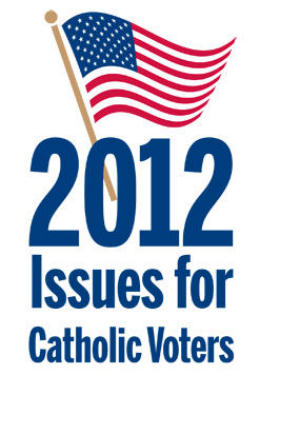
WASHINGTON, DC (Catholic Online) – The issue of voter guides has been raised again and again in our Catholic Countdown to Election 2012. And for good reason!
How can Catholics make an informed decision without knowing the teaching of the Church on the most importance issues or knowing where the candidates stand on those issues?
So, don’t stop reading now because this is another article about voter guides, because we have some new information to report. The rationale behind the alphabetical voter guides has been explained, via email, to a friend of ours who expressed his concern, and that email contains some revealing arguments.
Since we have no desire to pick a fight with any particular individual or any state Catholic conference, we will not reveal either the name of the person sending the email or the conference involved. But the arguments themselves deserve a public hearing and close scrutiny.
Our friend wrote to his state’s Catholic conference as follows:
"Your Presidential voters’ guide is woefully inadequate. To put out an ‘alphabetical’ listing implies all these issues are morally equivalent and that none of them are inherently evil."
To his surprise, he received a rather lengthy email containing four arguments in defense of using an alphabetical listing rather than one that distinguished between settled, or non-negotiable issues and prudential matters.
The first two arguments — #1 and #2 — are contained in the following paragraph, which I quote verbatim:
"The reason for not highlighting one issue over another is twofold: respect for free will and the prohibitions that attend our tax status."
Needless to say, the "respect for free will" argument implies that all the moral and social teaching of the Church violates free will since it calls us to cultivate habits and affirm values that we may not already possess or agree with.
If teaching necessarily leads to changes in the habits, actions, and beliefs of those being taught then the issue of freedom would be valid; however, I doubt if anyone who observes the human condition would agree that teachers have that degree of power or influence.
Not even priests and bishops in their role as teachers enjoy that degree of success, as those Catholics who promote contraception are so delighted to report.
The argument about the Church’s tax status, #2, will strike most people as strange, since none of the Church’s documents on political participation endorse a candidate by name.
However, the argument made in this email is concerned with what we shall call "endorsement by implication." Notice the logic of the next two arguments — how they make the case that distinguishing between settled and prudential issues would be tantamount to an endorsement of a particular candidate.
The 3rd argument of the email must be linked with what follows, the 4th argument:
"It is not our role to be partisan or tell individuals for whom to vote, but rather to assist Catholics with properly forming their consciences in light of the values of the Gospel and fundamental teachings of the Church."
Just how does an alphabetical issue guide alleviate the possibility of the Church endorsing a particular candidate? The reason is provided by the 4th argument following the statement above:
"To get to the second part of the reasoning, giving weight to one issue would result in an endorsement of the candidate that agrees with the Church."
At the very least, the author of this email is assuming a level of rational deduction that in our experience is the exception rather than the rule in an individual’s decision about voting.
There is also the assumption that if Catholics are made aware of the intrinsic evils that should not be supported by our votes, then those Catholics would never, ever vote for those candidates whose policies admit intrinsic evils such as abortion and same-sex marriage.
Yet, the most important confusion contained in this series of arguments is that the very possibility of inference is being equated with a direct and public endorsement.
These arguments stretch the notion of "endorsement" well beyond common sense — and well beyond what is necessary to protect the Church’s tax exempt status.
An endorsement is just that, an endorsement: Institution A endorses candidate B and not candidate C. That’s very different from an institution declaring the principles it hopes its adherents will live by, and vote by, and not send its agents to follow them into the voting booth.
We hope that the fallacy of these arguments are a well-intentioned attempt to avoid problems with the IRS and those enemies of the Church who would like nothing better than to drag the Church through the courts.
Otherwise, these arguments can be seen merely as a compressed and indirect version of the Biden-Kennedy-Cuomo-Drinan tradition of justifying Catholic support for pro-abortion politicians.



